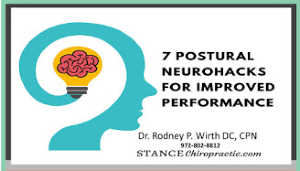Uncovering Sleep Secrets – Part 1
Have you ever had one of those days where you woke up exhausted and all you can think about is how much longer you have to keep going before bed? But then when you finally fell into bed, you could not go to sleep? This podcast episode addresses sleep secrets and changes you can make today to get a good night’s sleep and improve your health.
Why is sleep so important to my health?
When you sleep your body can repair itself. The better the quality of your sleep, the better your body functions and the better you feel. A good night sleep sets you up for success in your day because you are alert and energized.
The recent discovery of the glymphatic system shows that it helps your brain clean up the excess proteins and allows your body to produce the melatonin you need to get to sleep and stay asleep. This system works to clean out excess proteins while you are sleeping. (More on that later.)
What happens when you don’t get enough sleep?
Poor sleep contributes to stress, mood changes, difficulty concentrating, work mistakes, hormone imbalance and weight gain.
We are in the middle of sleep-less epidemic where more than one third of our population in the United States doesn’t get the 7 – 8 hours of sleep required for healthy living.
The cost of poor sleep is staggering. The economic impact is over $400 billion dollars due to accidents and fatalities. Drowsy driving had a part in over 6,000 car crashes and those suffering from insomnia were seven times more likely to get into an accident at work.
What are practical solutions to this problem?
Sleep Tip #1: Find a way to sleep in the dark.
Technical side:
The technical side of this issue is found in the pineal gland that produces melatonin and the amount of light in your bedroom affects that production.
Practical side:
Get rid of your night lights, close your door and use blackout shades. If you have to get up in the middle of the night, make sure you don’t turn on a bright light.
Sleep Tip #2: Keep the temperature in your bedroom between 60 and 80 degrees.
Technical side:
Your body temperature drops to its lowest level while you are sleeping. This usually happens about four hours after you fall asleep. A cooler temperature mimics this natural rhythm in your body.
Practical side:
Keep the thermostat at a steady moderate temperature. If you don’t want to pay high utility bills it might work for you to shed the heavy pajamas and use fewer bed coverings.
Sleep Tip #3: Go to bed early. The best time is between 9 and 10 pm.
Technical side:
Your body does most of its recharging in the adrenals between 11 pm and 1 am. This is an essential time for the system that controls the fight or flight area of your body to have the needed rejuvenation.
Practical side:
It is possible to establish a steady sleep rhythm through consistency. Your body will thank you if you keep these times even on the weekends.
Sleep Tip #4: Keep your bed as a place to sleep.
Technical side:
When you use your bed to watch TV or to do work you might drift off to sleep only to wake up in the wee hours of the morning.
Practical side:
You are not alone in this habit of watching TV in bed. A recent survey showed that approximately 90% of those surveyed made this their practice. For better sleep, move the TV out of the bedroom and make it a sanctuary for restful, peaceful sleep.
Sleep Tip #5: Go to bed every night and get up in the morning at the same time even on weekends.
Technical side:
A recent study published in the Journal of Clinical Endocrinology and Metabolism states that sleeping more on weekends may actually be bad for you. By changing your sleeping patterns over a short period of time, you are causing your natural Circadian rhythm to become out of sync.
Practical side:
Establish and maintain a regular sleep schedule. If you are regularly getting 7-8 hours per n ight you won’t need to get extra sleep on weekends.
The remainder of the Sleep Tips can be found in Uncovering Sleep Secrets – Part 2.









One Comment
Comments are closed.